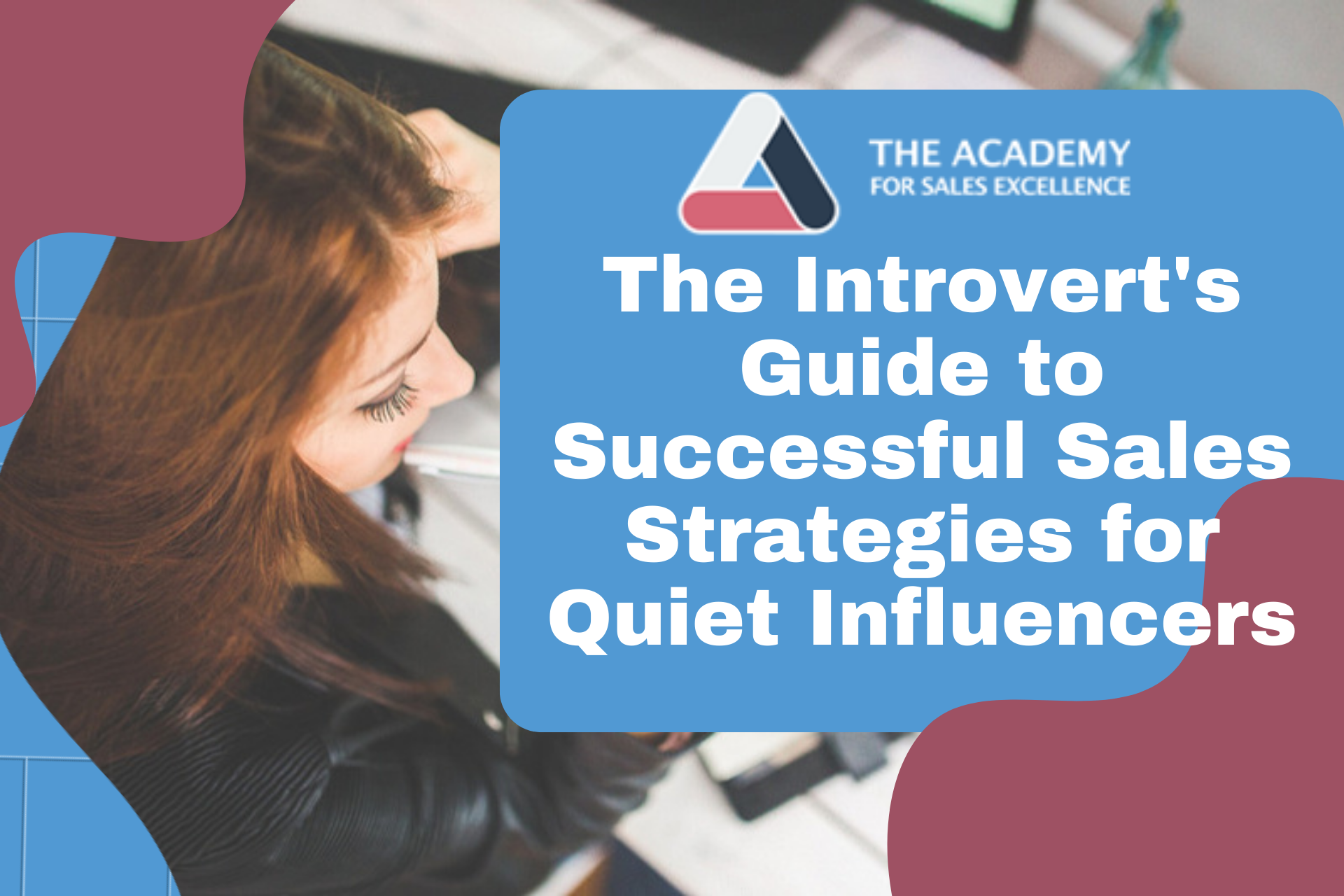In the world of sales, extroverted personalities often take center stage. They are known for their charisma, confidence, and the ability to strike up conversations with anyone. However, introverts bring a unique set of strengths to the table that can lead to equally successful sales outcomes.
In this blog, we will explore, we’ll delve into the qualities introverts possess, sales strategies tailored to their strengths, and tips for thriving in the sales field.
Understanding the Introvert Advantage:
1. Empathy and Active Listening:
Introverts tend to be great listeners. They excel at understanding customers’ needs, pain points, and desires through active listening. Use this strength to build stronger relationships with clients by genuinely empathizing with their concerns.
Empathy is the ability to understand and share the feelings, thoughts, and perspectives of another person. In sales, it involves putting yourself in the customer’s shoes to truly comprehend their emotions, challenges, and desires. Here’s why empathy is crucial:
Empathy in Sales:
- Building Trust: When customers feel that you genuinely care about their concerns, they are more likely to trust you. Trust is the foundation of any successful sales relationship.
- Effective Communication: Empathetic salespeople can communicate more effectively because they understand the customer’s viewpoint. This leads to more meaningful and relevant conversations.
- Problem Solving: Empathy allows you to identify and address customer pain points and objections more effectively. It helps you offer solutions that genuinely address their needs.
- Customer Retention: Customers appreciate working with salespeople who show empathy. It increases the likelihood of repeat business and referrals.
Tips for Practicing Empathy in Sales:
- Active Listening: Pay close attention to what the customer is saying, both verbally and non-verbally. Avoid interrupting and allow them to express themselves fully.
- Ask Open-Ended Questions: Encourage customers to share their thoughts and feelings by asking open-ended questions that go beyond simple “yes” or “no” answers.
- Reflective Statements: Repeat back what you’ve heard to show that you understand. For example, “It sounds like you’re concerned about X. Is that correct?”
- Body Language: Maintain eye contact, nod, and use body language to convey that you are engaged and attentive.
2. Thoughtful Communication:
Introverts often think before they speak, leading to well-considered, thoughtful responses. This trait can be a significant advantage in sales, where words carry weight. Crafting persuasive and meaningful messages becomes second nature.
Thoughtful communication is a critical aspect of effective sales, especially for introverted or quiet influencers. It refers to the deliberate and considerate way you convey information, ideas, and messages to your prospects and customers. Thoughtful communication aims to make your interactions meaningful, relevant, and persuasive. Here’s how you can excel in thoughtful communication:
Tailoring Your Message: Understand that every prospect is unique. Take the time to research and gather information about each individual or organization you’re dealing with. This knowledge allows you to customize your message to their specific needs, challenges, and goals.
Highlight how your product or service directly addresses their pain points and offers solutions. Show them that you’ve done your homework and are genuinely interested in helping them.
Clarity and Simplicity: Keep your message clear and straightforward. Avoid jargon or overly technical language that might confuse or overwhelm your audience.
Use simple, concise language to explain complex concepts. Visual aids, analogies, and real-world examples can help make your message more understandable.
Active Engagement: Encourage interaction and questions from your prospects. Invite them to share their thoughts, concerns, and questions. This not only helps you gauge their level of interest but also shows that you value their input.
Respond to questions and objections thoughtfully. Take a moment to consider your response rather than rushing to answer. Thoughtful responses demonstrate your expertise and professionalism.
Storytelling: Use storytelling to illustrate your points and create an emotional connection with your audience. Share success stories, case studies, or anecdotes that showcase the benefits of your product or service.
Stories help make your message more relatable and memorable, enhancing your ability to influence and persuade.
Active Listening and Feedback: Thoughtful communication is a two-way street. Listen actively to your prospect’s responses, concerns, and feedback.
Acknowledge their input and address any questions or objections thoughtfully. This shows that you value their perspective and are willing to work collaboratively to find solutions.
Respectful and Professional Tone: Maintain a respectful and professional tone throughout your interactions. Avoid confrontational language or aggressive sales tactics.
Show empathy and understanding, especially when dealing with objections or challenges. A considerate approach can turn objections into opportunities.
Follow-Up: Thoughtful communication doesn’t end with the initial interaction. Follow up with your prospects in a timely and considerate manner.
Send personalized follow-up messages that reference specific points from your previous conversations. This reinforces the sense that you’ve been attentive and that their needs are a priority.
Adaptability: Be flexible in your communication style to accommodate the preferences of your prospects. Some may prefer detailed written proposals, while others may prefer a brief verbal summary. Adapt to their communication style to enhance their understanding and comfort level.
In summary, thoughtful communication is about approaching sales conversations with a mindset of genuine care, respect, and a commitment to providing value to your prospects and customers. By tailoring your messages, maintaining clarity, engaging actively, and showing empathy, you can build stronger relationships, gain trust, and ultimately achieve success in sales as a quiet influencer.
3. Relationship Building:
Introverts thrive in one-on-one or small group settings. They build deep, meaningful relationships with clients, fostering trust and loyalty over time. These strong connections often result in repeat business and referrals.
Introvert-Friendly Sales Strategies:
1. Quality Over Quantity:
Instead of making a high volume of cold calls, introverts can focus on fewer, more targeted prospects. This allows for more in-depth research and personalized communication, which often leads to higher conversion rates.
2. Preparing and Rehearsing:
Introverts shine when they have time to prepare. Before sales meetings or presentations, invest time in researching your prospect, their industry, and their pain points. Rehearse your pitch to boost confidence.
3. Networking with Purpose:
Introverts can succeed in networking by attending smaller, industry-specific events where meaningful connections can be established. Set realistic networking goals, such as having meaningful conversations with a few key individuals.
Thriving as an Introvert in Sales:
1. Self-Care:
Introverts may find sales draining, especially when it involves constant social interaction. Prioritize self-care to recharge your energy, whether through alone time, hobbies, or mindfulness practices.
2. Time Management:
Create a structured schedule that allows for focused sales activities and built-in breaks. Introverts often perform best when they can recharge between interactions.
3. Leverage Technology:
Use technology to your advantage. Email, social media, and CRM systems can help introverts maintain and nurture client relationships with less face-to-face interaction.
Active Listening in Sales:
Active listening is a subset of empathy, and it involves fully concentrating, understanding, and responding to what a customer is saying. It’s an essential component of empathy and an integral part of successful sales interactions:
- Engagement: Active listening shows the customer that you are fully engaged and interested in what they have to say. This helps create a positive impression.
- Understanding: By actively listening, you can gain a deeper understanding of the customer’s needs, preferences, and pain points. This information is invaluable in tailoring your sales pitch.
- Conflict Resolution: In sales, conflicts or objections may arise. Active listening allows you to address these issues more effectively by acknowledging the customer’s concerns and finding common ground.
- Relationship Building: Active listening contributes to building strong, trust-based relationships with customers. It demonstrates your commitment to their satisfaction.
Tips for Practicing Active Listening in Sales:
- Give Your Full Attention: Eliminate distractions and focus solely on the customer during the conversation.
- Paraphrase and Clarify: Repeat back what the customer has said to ensure you’ve understood correctly, and ask clarifying questions when needed.
- Validate Emotions: Acknowledge the customer’s emotions and concerns. For example, “I can see that this issue has been frustrating for you.”
- Avoid Prejudgment: Avoid making assumptions or jumping to conclusions about the customer’s needs. Let them express themselves fully before offering solutions.
Incorporating empathy and active listening into your sales approach can set you apart as a salesperson who genuinely cares about customers and their success. These skills not only enhance your sales effectiveness but also contribute to long-term customer relationships and loyalty.
Being an introvert in sales doesn’t equate to limitations; rather, it represents a unique set of strengths that can lead to extraordinary success. By understanding and harnessing these strengths, introverts can become quiet influencers in the sales world.
Remember that success in sales isn’t solely determined by personality type; it’s about finding the right strategies and approaches that align with your strengths and preferences. So, introverts, embrace your natural abilities, and excel as quiet influencers in the world of sales. Your thoughtful and empathetic approach can make all the difference in building lasting client relationships and achieving sales success.
At The Academy For Sales Excellence, our team is always here to provide




